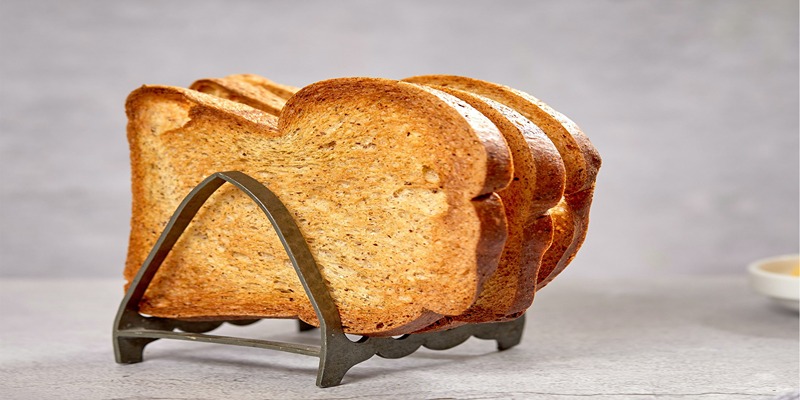Humans rely on memory, an innate mental capacity, for both routine tasks and new information acquisition. Information storage, retention, and recall rely on this intricate process that involves many regions of the brain. Our identities, our decision-making processes, and our worldviews are all shaped by this capacity. Memory and cognitive function play an increasingly important role as we face life's many obstacles. These abilities are fundamental to our capacity for creative thought, emotional intelligence, and problem-solving; they are not only about recalling past experiences or information. Improving one's memory and cognitive abilities has become an important tool for advancement in today's information-rich society.

Understanding Memory and Its Functions
As a storehouse for past events and knowledge, memory is an essential part of the human brain. The three main steps of memory are encoding, storage, and retrieval. Learning anything new is called encoding; storing it means keeping it safe over time; and retrieval means being able to use it when required. Because of this intricate web of relationships, people are able to understand and adapt to their surroundings.
Memory has several functions in everyday life. The acquisition of new information and abilities is facilitated by its use in the educational process. Memories play a crucial role in social interactions, allowing us to remember personal experiences, recognise people, and sustain relationships, in addition to academic and vocational contexts. Our sense of identity is also greatly influenced by it. The stories we tell ourselves via our memories help us maintain our identity as we grow older.
Memory is also not static, but rather constantly changing. It may become better with time and go worse with things like stress, aging, and a lack of mental challenge. To improve one's quality of life and cognitive health, it is necessary to have a firm grasp of memory's mechanics and its relevance to everyday life. Only then can one begin to investigate ways to strengthen memory.
Memory Boosting Brain Exercises
Interactive Memory Games
Interactive memory games are a great tool for this. Playing these games forces you to use your memory in new ways by forcing you to recall patterns, sequences, and details. Playing card matching games, for instance, may help with focus and visual memory by requiring players to remember where matched cards are. Word association games are a great way to improve your verbal memory and cognitive flexibility. These games require you to remember words that are connected by sound or topic. These games provide an entertaining and interactive method to improve memory, and they may be played in both digital and physical forms.
Mental Visualization Practices
Visioning exercises in one's mind are another powerful method. To do this, one must mentally picture the material in a vivid manner in order to enhance its memorability. If you're having trouble remembering a long list of objects, one technique is to imagine a tale in which each item has its own special, and sometimes inflated, interaction. Associating knowledge with particular places in a familiar environment enhances the capacity to remember it later; this strategy is known as the "method of loci" or the memory palace technique. This kind of visualizing helps with both the memorization of information and the development of creative thinking abilities.
A person's memory may be greatly enhanced by consistently using these methods. Memory isn't the only cognitive function that these workouts improve; they also help with mental agility and resilience.
Cognitive Function Enhancement
Nutritional Factors Affecting Memory
When it comes to brain health, nutrition is paramount. Memory and cognitive function are aided by certain foods more than others. Eating foods like walnuts, flax seeds, and salmon is a great way to get the omega-3 fatty acids your brain needs. These fats help make new neurons and brain cells, which are very important for learning and memory. Berries and leafy greens are rich in antioxidants that fight inflammation and oxidative stress, two factors that may damage brain cells. Supplementing brain function and warding off cognitive decline include diets rich in minerals such as magnesium and zinc, as well as vitamins B, C, D, and E. Therefore, improving cognitive health and memory may be as simple as eating more of these nutrients.

The Impact of Physical Exercise on the Brain
One of the most important ways to improve one's cognitive abilities is to exercise regularly. Exercising on a regular basis raises heart rate, which in turn improves cerebral blood flow. In the long run, this procedure improves brain function by encouraging the formation of new brain cells and making current ones last longer. The volume of the brain's regions responsible for memory is enhanced by aerobic sports, such as walking, swimming, and cycling, making them especially advantageous. On top of that, exercise triggers the secretion of hormones that encourage neuroplasticity, the process by which new connections between neurons are formed and existing ones are strengthened.
Brain Training for Memory
The proliferation of online resources providing a variety of memory-enhancing activities has contributed to the meteoric rise in popularity of brain training programmes that use technological elements. To stimulate the areas of the brain responsible for memory, try playing memory sequencing games or solving puzzles that ask you to recall patterns or numbers. By gradually increasing the difficulty, these digital workouts keep the brain active and help it improve its memory. Personal training programmes are also available on many of these platforms; these programmes adjust to each user's progress and provide comments to help them improve.
Conclusion
Improving memory and cognitive performance calls for a multipronged strategy that include physical activity, healthy eating, and brain workouts. Memory and cognitive health may be greatly enhanced by the use of focused brain training exercises, mental visualization, a diet that is good for the brain, regular exercise, and interactive memory games. In the long run, these methods improve one's personal and professional lives by strengthening memory and making one's intellect sharper and more nimble. By committing to these habits, you may strengthen your mind and live a fuller, more fulfilling life.




